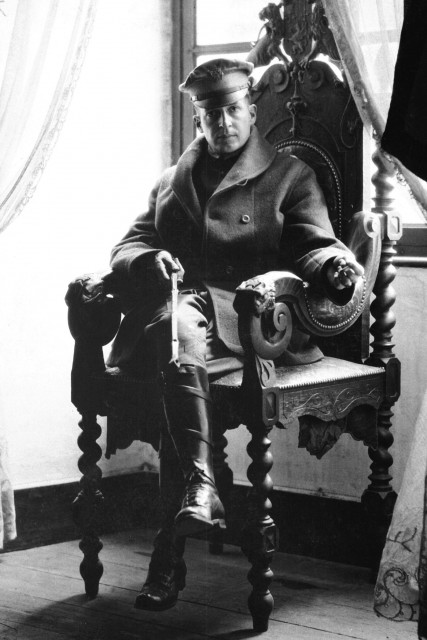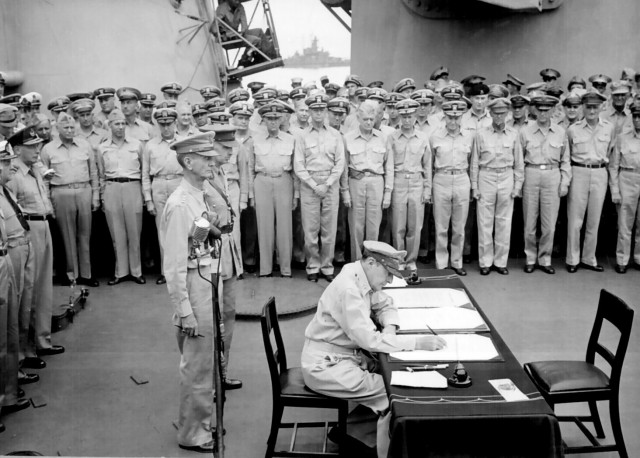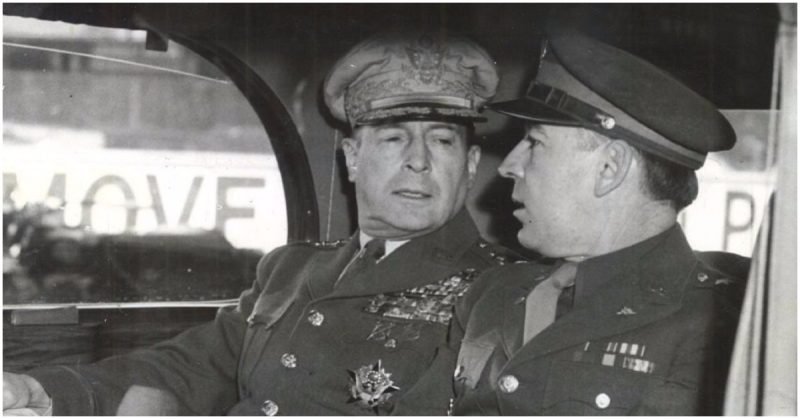There are few times in history where we can say a man was born and raised in such a season that he should be at his prime when his country needs him most. Such is the case of General Douglas MacArthur and his life’s journey to reach such a point is as audacious as the legend of the man himself. We are talking about a man who was nominated for a Medal of Honor in seemingly every conflict he entered. And yet, he was inexplicably known to wear a Japanese kimono at his desk and smoke cigarettes from a jeweled case.
Whatever one might think about that, when America needed him to face the Japanese threat, he was already 3/4th of the way to Japan before the first shot was fired.
Just Getting Warmed Up
As much as General MacArthur had a knack for pursuing greatness, he had an equal joy for ruffling the feathers of his superiors. His first Medal of Honor nomination from the occupation of Veracruz in 1914 was only denied because the audacious enterprise he undertook was not authorized by his command. Seeing a need for locomotive engines to support the logistics of the expedition, a young MacArthur decided he would go and get them himself. Fighting his way there and back, MacArthur displayed early on a ferocious streak of independence that would serve both him and his nation well. And occasionally get him into hot water of course.
Fast forward a few years and America would find itself in the fields of France circa 1918. For his actions in World War 1, MacArthur was nominated a second time for the Medal of Honor. And while he wasn’t awarded it the second time either, his reputation would catapult him to places of power and prominence prior to World War 2.

After World War 1, MacArthur would find himself as the Superintendent to West Point in 1919, the Army’s youngest Major General by 1925, and Chief of Staff of the United States Army by 1930. In 1935, MacArthur was asked to supervise the creation of the Philippine Army and in 1937, he retired from the United States Army at the ripe old age of 57 to become Field Marshall for the newly formed Philippine Army. You read that correctly, prior to the outbreak of World War 2 in the Pacific, General Douglas MacArthur was retired.
World War 2
But lest you think he was past his prime, I need to remind you that he did get married and produce a son at the age of 58. However, with the coming conflict, his son wouldn’t step foot in the United States until he was 13 years old. Recalled to Active Duty by Roosevelt in 1941, MacArthur would find himself besieged in the Philippines by the Japanese a few months later. With no hope for victory against the overwhelming Japanese forces, MacArthur was ordered by Roosevelt to withdraw himself to Australia. A controversial decision that would leave many American soldiers left in the Philippines to surrender and yet, inexplicably, led to MacArthur’s third nomination for the Medal of Honor.

Unlike the prior two times, MacArthur actually was awarded the Medal and many saw it as a political and public relations move more than an award for heroism. However, for a man with two prior nominations and more silver stars than a human has fingers on one hand, few can deny the fighting character of the man. Then again, there was the time in 1932 when he created the Purple Heart award only to make himself the first recipient for wounds received in World War 1. Seems a fitting action for the man in a kimono holding a jeweled cigarette case.
The Inexplicable MacArthur
The rest of MacArthur’s exploits in World War 2 have become the stuff of legend and it would take an entire book, of which there are many, to cover them all. Promising to return to the Philippines, MacArthur made good on that in 1944. Then, in September of 1945, the man who was once retired stood on the deck of the USS Missouri to watch the same nation which had booted him from his beloved Philippines surrender to none other than the one and only, MacArthur.

He would go on to become the Supreme Commander for the Allied Powers in Japan as he oversaw the reconstruction of Japanese society. Not a bad resume and fitting end for 50 years of military service, but war wasn’t done with him yet. With the invasion of South Korea by the North, MacArthur would somehow find himself inexplicably right in the middle of both war and controversy again. This time, he would find himself at odds with the President himself which led to MacArthur’s subsequent removal from command.
Some say MacArthur wanted to nuke China, others say the President was worried about MacArthur’s power and influence over the war. In either case, America didn’t seem to care as they recognized what they owed this national hero and he was welcomed home in 1951 to great fanfare and a ticker tape parade. His influence on American military life would continue to loom large and he was even reported to have advised President Kennedy in 1961 to avoid military escalation in Vietnam. General MacArthur died in 1964 a national hero who will forever be surrounded by a haze of controversy. However, I have the nagging suspicion that the man in the kimono wouldn’t have it any other way.
